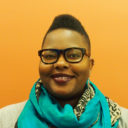Today, on International Day Against Homophobia, Transphobia and Biphobia (IDAHOT), I won’t be at a LGBTQI community event or a film screening. Rather, I will be on a six-hour bus ride with my colleague Olumide, as part of a month-long tour to meet LGBTQI activists in seven West African countries. Amidst periodic naps and food breaks, we’ll be strategising on how Initiative Sankofa d’Afrique de l’Ouest (ISDAO), a West African LGBTQI activist-led fund, can practically support the leadership of LGBTQI communities in the spirit of this year’s IDAHOT theme of justice and protection.
For me, providing core and flexible funding to LGBTQI-led groups and organisations is critical towards this vision. This means centering LGBTQI-led groups and organisations, not projects that have LGBTQI communities as beneficiaries but whose organisations are not led by our communities. As the 2016 We Exist report highlighted, much of the limited funding that is available and accessible to organisations in West Africa has historically focused on HIV education and service delivery, with some funding for human rights advocacy. In contrast, activists across nine West African countries stated that their top priorities were safety and security, homelessness, poverty, family rejection, and discrimination.
On this trip, we recently met with a group of dynamic LGBTQ young people in Cote d’Ivoire, who had submitted a proposal on human rights education for police and local leaders. When we asked about the biggest challenge faced by community members, without hesitation, the leaders said, ‘family rejection’ and went on to describe its impact on not having a place to live, economic insecurity, isolation and safety and security risks. When asked why they had not developed a proposal around this, knowing that ISDAO’s grants are flexible and are meant to respond to the communities’ priorities, it was clear that the idea of developing a project around responding to – and preventing – family rejection had not even been considered as part of the realm of possibilities!
On IDAHOT, as funders, we need to ask ourselves if and how we are really facilitating spaces and opportunities for LGBTQI-led activist groups and organisations to think expansively, to strategise and work towards creating different realities. At ISDAO, we aim to shift how funding decisions around LGBTQI organising in West Africa are being made, and thus have joined a growing community of participatory grantmakers. The activists on the ISDAO Activist Grantmaking Panel are not just being consulted or serving as advisors – they are decision-makers.
For our inaugural cycle, this panel approved 28 grants across seven countries, which respond to several clear gaps in terms of access to funding. Half of the grantee organisations are led by and focused on LBQ women and/or transgender and intersex persons. For about one in five of the groups we have visited so far on this trip, ISDAO will be their first institutional funder. Approximately 50 per cent of the total grants amount will go to Francophone countries, which have been woefully under-resourced, as highlighted in the Global Philanthropy Project’s 2015-2016 Global Resources Report. ISDAO’s first cycle of funding also responds to organising that is taking place on a variety of settings, including in rural areas and outside of capital cities. The engagement of activists who understand the realities and gaps within the movement, has definitely enabled ISDAO to support groups who are doing important work but have struggled to access funding.
Worldwide, IDAHOT is a powerful day of resistance, visibility and recognition for the LGBTQI community, and it acts as a reminder for us, as funders, about the need for our sustained, long-term support of the activists and the organising that helps propel change. This year’s IDAHOT (fun fact: in French, IDAHOT sounds a lot like ISDAO), I’ll be following our partners’ events on twitter and Facebook. After all, our missions and names are pretty similar.
Caroline Kouassiaman is executive director of Initiative Sankofa D’Afrique de L’Ouest






Comments (4)
Reading this piece kind of brings hope to some of us desiring unity in this movement... God bless your kind heart
Good one!
Thanks ever so much for the support and work you do in building the LGBTQI movement across West Africa, the sub region including the global south and north in promoting economic empowerment equality and security protection for LGBTQI community members. We whole heartedly appreciate your work and say welcome in wearing another hat. It was really nice seeing you abs Olumide the other day . In liberia 🇱🇷🌴🤙
A very interesting read and one very important key elements was highlighted by you; 1. "....Centering LGBTQI-led groups and organisations, not projects that have LGBTQI communities as beneficiaries but whose organisations are not led by our communities..." Much of the Invisibility we suffer here in West Africa has been because 70% of the time, we are simply beneficiaries of whatever programming and projects come our way. In truth, we are tired of the above situation. We know what the issues are, we therefore want to lead in the design and implementation of projects that will bring us out of the margins. Thank you for the interesting read.